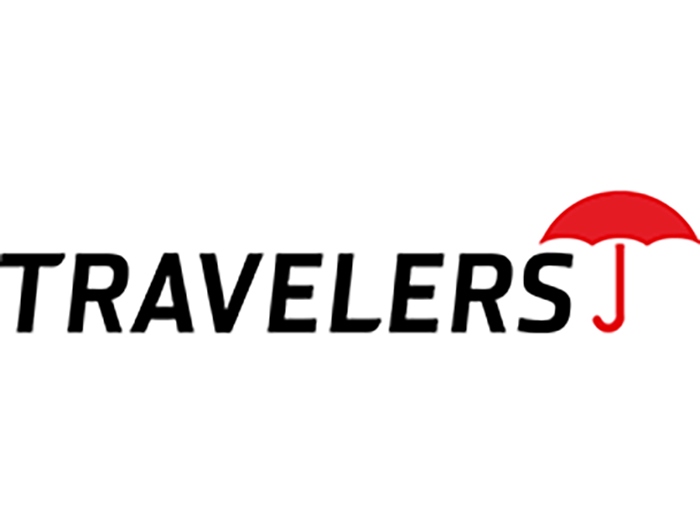How Insurance Could Help Small Businesses Respond to COVID-19 Business Interruption Costs

Walk through any major U.S. city right now and it feels like the ghost towns of Western films. There are few people, if anyone at all on the streets. Businesses are shuttered and boarded up. Many have paper signs taped to the window announcing that they’re closed indefinitely.
As losses pile up, many businesses are turning to their insurance policies for relief only to find that many business interruption policies exclude pandemics or require direct physical loss for the policy to kick in, surprising many business owners who didn’t pay close attention to their policy language.
“Most of them probably don’t even know there’s no coverage there,” said Colleen Wells, vice president of product strategy at Sapiens. “They’re trying to figure out what they can do and where they can get some relief.”
“Small businesses have a gap,” said Jason Schupp, founder and managing member of the Centers for Better Insurance. “We clearly have a need for relief for business income replacement, for payroll continuation at the small business level and for other businesses for the current crisis.”
As businesses in general and small businesses in particular face massive losses, many are looking for ways in which the insurance industry can help.
“We can look at the insurance industry and say these are the people who respond when we have terrorism events, or earthquakes, hurricanes,” Schupp said. “We have people who are highly skilled at responding to catastrophic business income loss and [many are asking] can those capabilities be put to use today.”
Three Major Possibilities to Cover Losses
Many in the industry see three possibilities for covering business interruption losses caused by COVID-19: A Pandemic Risk Insurance Act (PRIA) model, a write your own model and a victims compensation fund.
The PRIA plan, proposed by Butler University Risk Management professor Zach Finn, is modeled after the Terrorism Risk and Insurance Act (TRIA). Enacted after 9/11, TRIA created a federal backstop that allowed claims costs from acts of terrorism to be shared by insurance companies and the federal government.
Under this plan, the government would either amend TRIA to include pandemic losses or it would create PRIA to create a cost sharing mechanism between insurers and the Federal government. For this mechanism to be triggered, a Certified Act of Pandemic would have to be declared by the Secretary of Treasury and losses would be “paid exactly as if a Terrorism Event were the Certified Act causing Business Interruption.”
“A PRIA would simply be an organized way to create a risk pool for a peril that we all better understand now. We need a pre-funded risk pool available that’s fair, organized and underwritten. We need the government to be the bank with other’s premiums, not necessarily tax payer money,” Finn wrote for Risk & Insurance®.
Another option for coverage is the write your own framework proposed by Schupp in his COVID-19 Small Business Insurance Program Proposal. Under this model, TRIA eligible insurers could elect to offer their small business policy holders the option to receive program benefits that would offset the costs of the pandemic.
If policyholders elect to participate, they would then agree to release any business income and extra expense claim that could be made under their commercial property insurance policy.
In this model, insurance companies act as a kind of service provider for benefits defined by the federal government.
“The federal government designs the insurance, says here’s the benefits, here’s what you’re going to charge, here’s what it costs,” Schupp said.
“Insurance companies, you’re a service provider. You sell the stuff, maybe get a little commission for the agents or distributors and then when there are claims you administer those claims. But all the financial, what we think about as the risk money… that’s 100% born back by the federal government.”
The third option would be a victims compensation fund, similar to the one that existed after 9/11. Under this plan, the insurance industry wouldn’t be involved at all. Instead, the federal government would create a program with its own schedule of benefits for those affected by COVID-19.
“Everybody wants to help small businesses, but I think the question is where the help should come from and the answer is the federal backstop. Not by bending and twisting the insurance policies in a way they were not intended to be,” said attorney Mary Jo Hudson, partner at Squire, Patton, Boggs, Columbus.
Taken together, these plans create a spectrum of possible involvement for insurance companies.
“You have at the one end the TRIA, which is a risk sharing model. You have, in the middle, the write your own model, which is really the insurance industry participating as a service provider, not as a risk bearer. And then the third which is the victim’s compensation model, which is not relevant to insurance,” Schupp said.
Some States May Ask Insurers to Bear Costs
While these three plans involved the insurance industry taking partial or no responsibility at all for paying COVID-19 related business interruption claims, other proposals from lawmakers would require the industry to pay claims despite clear policy exclusions.
In New Jersey, legislators introduced a bill that would require insurers to pay business interruption losses caused by COVID-19, despite exclusions, according to the Philadelphia Inquirer. The bill would only require insurers to retroactively cover losses for businesses with fewer than 100 employees.
Although the bill was pulled from a vote in the General Assembly over questions of constitutionality, Reuter reports that two other states, Ohio Massachusetts, introduced similar bills, suggesting more states will follow. A bi-partisan group of U.S. House members wrote a letter to insurance trade associations encouraging them to take up similar measures.
Those within the insurance industry are skeptical about both the fairness and the legality of legislation that would require the insurance industry to cover losses that were explicitly excluded from their policies.
“I don’t think it’s possible to ask after an event for the industry to risk share. That doesn’t add up.” Schupp said. “The industry flagged that they were not there for this exposure and we did nothing about that. Nobody came up with another plan. And so that falls back onto all of us then, not back onto the insurance companies. That’s really a societal problem.”
“I do not think it’s constitutional or legal,” Hudson said. “By adding this legislation it creates an atmosphere for much higher instability within insurance markets and that’s the last thing we need right now.”
If these mandates pass and are upheld by the courts, they would substantially weaken insurance contracts.
“I think a proposal like the New Jersey Business Interruption Coverage Mandate would really weaken the insurance regulatory framework. It’s effectively bending insurance contracts and tapping into insurance company reserves that are intended to help other policyholders,” Hudson said. “It’s effectively robbing Peter to pay Paul and cover government shortfalls.”
The Future of Business Interruption and Pandemic Losses
Even after the current pandemic is over, questions over who’s responsible for business losses caused by a viral outbreak will continue, since many business interruption policies either require actual physical damage to trigger a claim or exclude viral outbreaks entirely.
“Everybody knew this was excluded and it’s been that way for fifteen years,” Schupp said. “We probably should have had a conversation fifteen years ago and said, ‘hey, the insurance industry’s stepping out on pandemic. What are we going to do?’
“One day, COVID-19 is going to be behind us and businesses, lenders and others are going to say, ‘okay, what happens next time and is there going to be adequate coverage and protection for the next pandemic.”
In the short term, carriers, underwriters and actuaries are looking at the potential affects different policies could have on their books of business.
“I think carriers are risk averse to begin with, so even if it’s unconstitutional or even if the chance of this being enforced are small, I think carriers are still looking at the potential impact if this were to happen,” Wells said.
Property and casualty carriers are also seeing a decrease in their business sales due to the uncertainty that surrounds the virus, experts said.
“This particular carrier that I talked to has seen a decrease in new business sales, so that’s going to happen. There’s so many unknowns,” Wells said. “At renewal for their commercial lines insurance [companies] are just having it renewed because they don’t want to have to change carriers right now.”
Rates are also likely to see increases as a result of the pandemic.
“There’s still a financial burden on the insurance industry even if there is no coverage, because they still have to got through the process of is this a legit coverage is there not coverage, and going through that litigation there’s still dollars associated with it,” Wells said. “The likelihood that rates will increase, is pretty likely.”
More long term, the industry and the federal government will need to grapple with other areas that insurance doesn’t cover and what the role of the industry will be moving forward.
“We probably need to look really hard at our standard insurance policies and say, ‘what else is missing?’” Schupp said.
“If the insurance industry does not stake out a role in COVID-19, a special contribution that it’s making, then I struggle to see how the industry will maintain its current relevance for catastrophe’s going forward.” &










